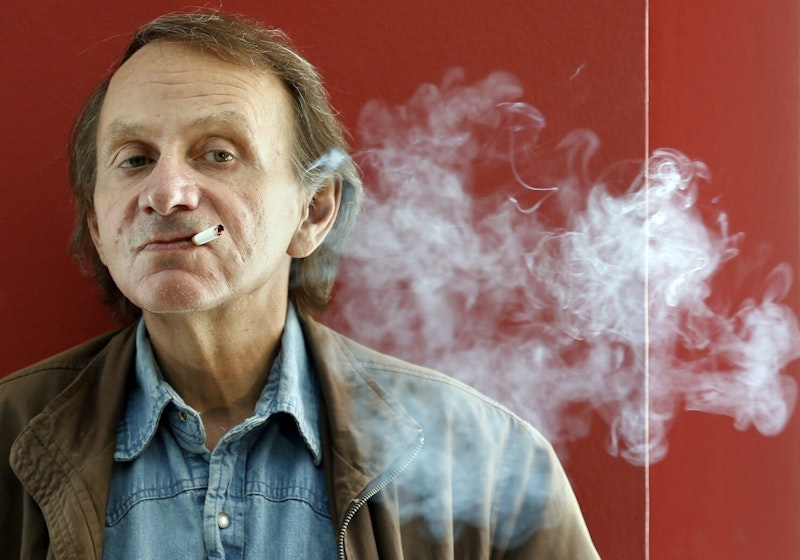Gloria Steinem: There's a wonderful book by Judith Herman in which she compares the trauma experienced by veterans in war to the veterans of domestic violence, and discovers that the veterans of domestic violence suffer far more.
Michel Houellebecq: It would be impossible to talk about it more than they already do, so my book won’t have any effect. If anything has become obvious, it’s that.
Steinem: The laws on the books are not so bad now.
Houellebecq: But essays are what change the world.
Steinem: It has to be social. It doesn’t have to be true.
•••
Houellebecq: Now I really don’t know. First of all, I think, it’s my job, though I don’t care for that word.
Steinem: You could lose your job.
•••
Houellebecq: We’ve seen it happen before, it could happen again.
Steinem: And it doesn't exist in every culture. We have to say no.
Houellebecq: No. But the main characters are not satirical.
•••
Steinem: You know, which is the cause of this cavernous inner, unfillable vacuum. You know that then we try to fill with violence, drugs, work, I mean all kind of addiction.
Houellebecq: Yes, perhaps. It’s astonishing. I leave that unresolved.
•••
Steinem: The courts are just horrendous in this regard.
Houellebecq: I think we are seeing practically the opposite. Politically, one might even welcome this development—it’s not really a catastrophe.
Steinem: Much of what goes on television and rock lyrics and illustrations of record jackets and so on, justifies it and makes it seem alright.
Houellebecq: In itself, it can produce nothing, just emptiness and unhappiness.

